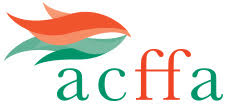Fundy Salmon Recovery project. Photo by Nigel Fearon
Atlantic Business Magazine - July 2021
They come with different backgrounds, expertise, and achievements, but the one thing all members of the Atlantic Canada Fish Farmers Association share is an origin story woven into the fabric of their communities.
“Our industry’s corporate social responsibility is on display every time we work on wild salmon conservation and coastal cleanups and local humanity and youth activities,” says Susan Farquharson, the organization’s Executive Director. “It’s baked in to everything we do.”
With 80 members – farmers, feed producers, support organizations, and regulatory agencies – the ACFFA represents an industry that contributes more than $2 billion, and over 8,000 jobs, each year to the Atlantic Canadian economy through research-intensive, environmentally and commercially responsible aquaculture.
“This is very much a science-based business,” Farquharson says. “Our members are global experts working directly in a field that the Food and Agriculture Organization of the United Nations stated is one of the top five priority areas for saving the world’s oceans.”
That means working locally and collaboratively on programs and applying new technologies to rehabilitation efforts aimed at conserving wild marine and freshwater resources in their own backyards and across Atlantic Canada.
The Inner Bay of Fundy (iBoF) Salmon Recovery Project, for example, is an award-winning collaboration – ACFFA, Cooke Aquaculture, The Fort Folly First Nations Habitat Recovery Program, the Village of Grand Manan, the New Brunswick Department of Agriculture, several federal government departments, and the Atlantic Salmon Law Enforcement Coalition – that’s made strides through a full-scale effort to save the species from extinction.
“This is a wonderful example of how scientists, conservationists, salmon farmers, First Nations and governments use their combined expertise to create a tangible impact on the recovery of an at-risk species that might not otherwise be possible,” Farquharson says.
The work continues, uniting a diverse membership with a sturdy principle that resonates both in Atlantic Canada and beyond: Corporate social responsibility is a collective commitment to sustainable communities.

